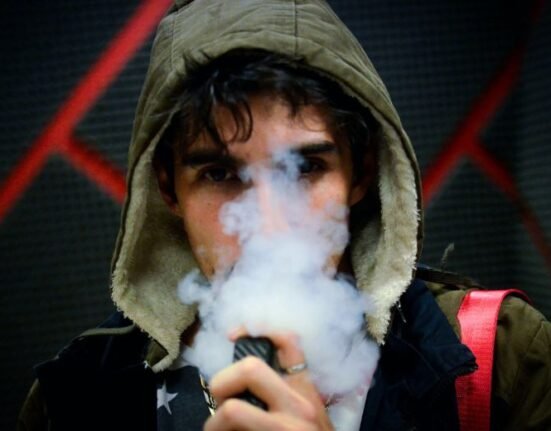Bharti Jayshankar
December 2, 2024: Researchers have made significant strides in understanding the relationship between social attention and problem drinking, particularly in young adults. A new study published in Alcohol: Clinical and Experimental Research with 246 young heavy drinkers utilized eye-tracking technology to explore how individuals perceive themselves in social interactions while consuming alcohol or a control beverage.
Participants aged 21 to 30 were randomly assigned to consume either an alcoholic beverage (target BAC of 0.08%) or a control beverage during virtual interactions with either friends or strangers. Eye-tracking technology monitored their gaze behaviors throughout the interaction.
Researchers tracked participants’ eye movements during the conversation and compared how much time they spent looking at themselves and how much time they spent looking at their conversation partner as a measure of social attention and self-consciousness. Over a two-year follow-up period participants completed questionnaires about their drinking behavior and occurrences of negative experiences related to alcohol in the past thirty days.
Self-consciousness
The study found that participants exhibited a link between self-consciousness and increased binge drinking days.
The researchers found that the more self-focused a participant was during the video calls, the more binge drinking days they tended to have reported at the outset of the study. Specifically, for each percentage point increase in time participants spent looking at themselves on the screen, there was a 1.3 percent increase in binge drinking days at the outset of the study. And for every one percent increase in time spent looking at the other person on the screen, there was a 1.1 percent decrease in binge drinking days at baseline.
However, over the two-year follow-up, participants in the control condition who interacted with friends and displayed increased self-focused attention showed a significant decline in binge drinking over time. This suggests that social context plays a critical role in moderating drinking behaviors.
Social context
The average reduction for all participants was less than 40 percent each year, a typically observed trajectory for this age group. The researchers speculate that people who are self-conscious may be more sensitive to social norms and expectations and, therefore, drink more in their late teens and early twenties when heavy drinking may be more typical and drink less as they get older and norms around drinking change.
They note that it is unclear whether self-consciousness may drive binge drinking, for example, as a coping strategy, or whether it may be a consequence of binge drinking, as heavy drinking can lead to depression and anxiety, which is associated with self-consciousness.
The study’s findings may not be applicable to those with alcohol use disorder who were excluded from the study. Researchers recommend future studies on different age groups and lengthening the duration of the longitudinal follow-up to better understand the role of social attention in drinking behavior.
For more detailed insights, refer to the full study here.




